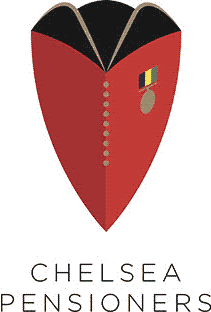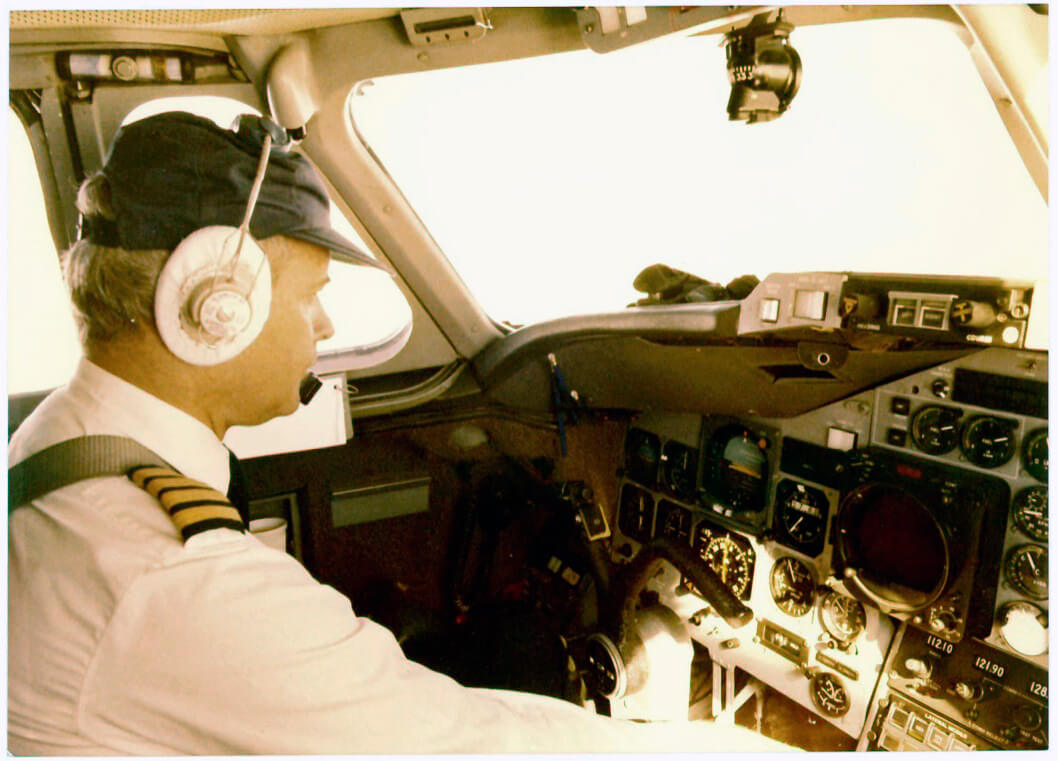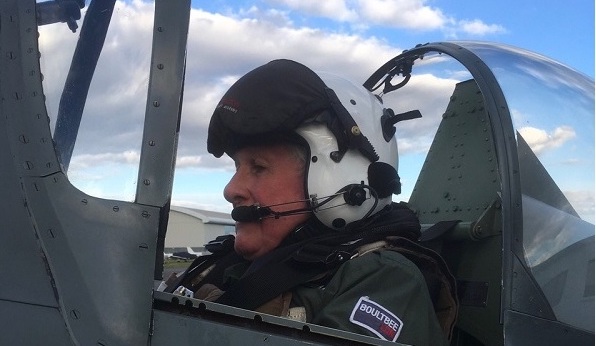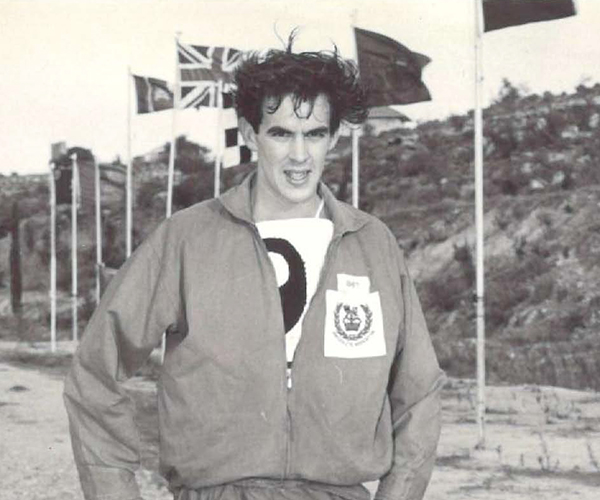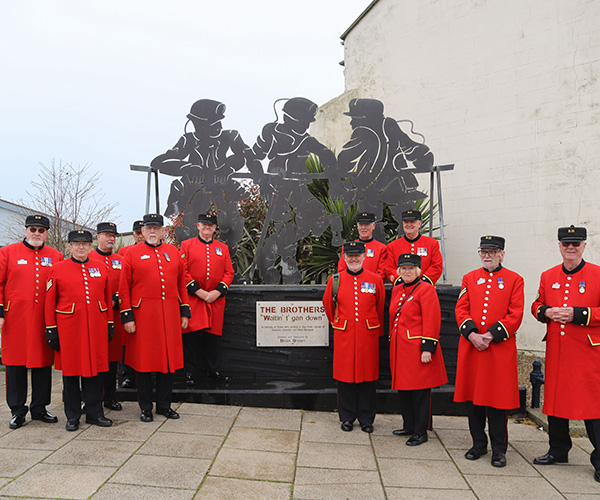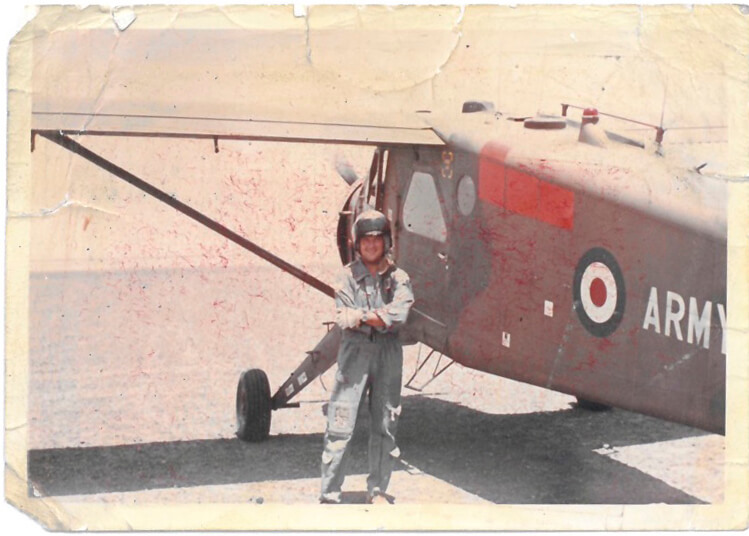
David Jackson an ex-Army pilot shares his story
23rd August 2019
David Jackson is the only Chelsea Pensioner who was a pilot in the Army. After serving in Aden, North Africa, Cyprus and the UK, he became a commercial pilot. All together, he has clocked up an impressive 20,000 flying hours! Here he shares some of the highs and lows of his airborne career.
I always wanted to be a pilot. At the age of four, during the war, I was already identifying various aircraft. I couldn’t wait to get my hands on the controls! I joined the Army at 15, because I wanted to get away from school. But I went straight back into education! I was doing Army things too though, which made it more interesting.
“I thought flying was heaven”
In my early 20s, I was a sergeant, working as an instructor at an Army apprentices’ school in Harrogate, when an Army helicopter came up to fly some of the boys. The pilot came into the sergeants’ mess for lunch and I questioned him about the Army air corps. He was very obliging and told me where to apply to. I had all the right qualifications and I passed the air crew selection tests.
After that, I was invited to attend an Army pilots’ course at Middle Wallop. There was a bunch of young guys, like me, and we were all issued with an instructor and an aeroplane to go on our first flight. The student sits in front and the instructor at the back. I thought it was heaven! We were flying over Hampshire and I had wonderful vision. I was shown Winchester cathedral and Salisbury cathedral. The instructor said to me, “When you go solo and are uncertain of your position, you know those cathedral spires now.”
Flying supplies, casualties – and ice cream – in Aden!
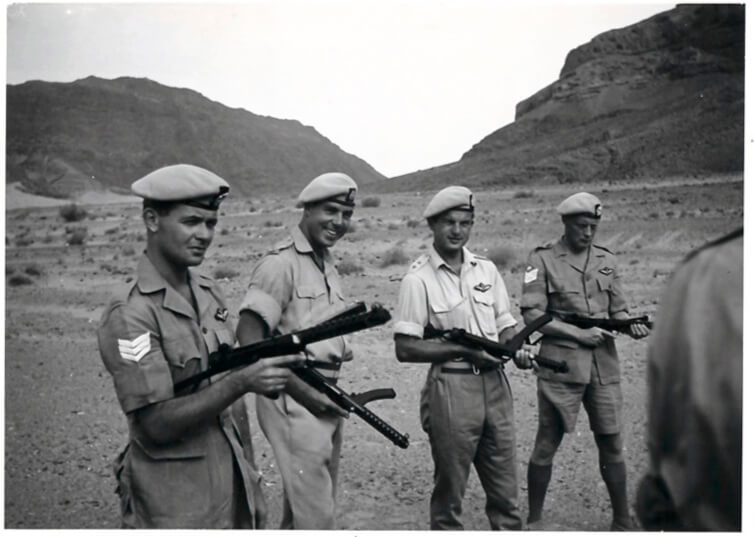
There was a company of 45 Commando at Dhala and they were under fairly constant attack from the tribes, because it’s right on the Yemeni border. They’d just pop over the border, fire a few rounds and pop back again. We could never catch them. So we were employed in active resupply of the commandos flying Beavers – a good aeroplane. The Beavers were also used for casualty evacuations. They could carry two stretcher cases and three stretcher cases, as well as a medic.
The engagement was spreading, and the tribesmen were filtering down from the Yemen into north-east Aden. The paras and 45 commando were rapidly deployed into area to counter the insurgency and an airstrip was established where the greater part of the action as taking place. We were kept very busy with resupply and casualty evacuation, as well as observation and reconnaissance. Around this time, the Yemeni captured some of our soldiers and dealt them a vicious set-up – they were ambushed and tortured to death and their bodies were flown out.
One day I landed on the commando airstrip in Little Aden and the sergeant in command came up to me and said, “David, you couldn’t get us some ice cream could you?”. We were only 10 minutes from the naffy in Thumeir. It was a basic, tented café but it had fridges with ice cream! So I got a gallon jug and flew it back to my commando friends. It was greeted very well! Those guys were out there in the sun with no cover and they were suffering.
From helicopters in the UK to an Auster in Cyprus
After two years my tour came to an end and I came back to the UK and did a helicopter course. I’m prejudiced of course, but I don’t think they’re real aeroplanes! One day I was flying along when I looked down and saw all these red lights on the instrument panel. That means, you’ve got to get down boy! So I pushed the lever down and came down with the power of the blades. It was a bit like a cartoon because my feet were running before they hit the ground! I hurtled across the field and turned round to see the paint on the side of the helicopter was glowing! Luckily, it didn’t catch fire.
After that, I was sent to north Africa with a tank unit. I’d had enough of desert though, so I objected and after two months I was sent to Cyprus, which was wonderful. I was seconded to work for the UN there and was based in Nicosia, flying an Auster. I was delivering mail and people and attempting to discover dissidents. There was a lot of aggro between the Greeks and the Turks at that time and we were trying to keep the peace. I was lucky to have a nice little aeroplane to fly around and look at this beautiful island!
Dancing princesses on a DC4
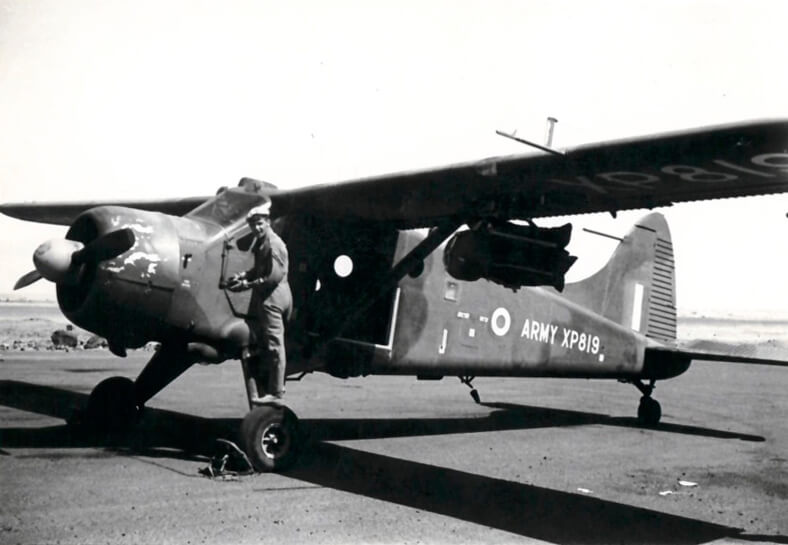
I started off flying very old DC4s – American World War II transport planes. I operated to the Middle East, East and South Africa and occasionally the Far East. It took much longer than today as the aircraft were so slow. I learnt a lot form some talented ex World War II RAF pilots, captains I worked with. The DC4 was a big beast and very strong, but weather was a problem because there was no radar in those days.
One time in Riyadh, Saudi Arabia, I was asked to fly some members of the Saudi royal family down to Jeddah. It turned out to be eight princesses! The cabin was equipped with a music centre and they were happy to dance the time away.
I had several engine failures on the DC4. One time I was flying an empty plane from Vienna to Gatwick when number three engine just quit. That’s fine because the rules say you can fly a four-engine plane on three engines. But ten minutes later engine four quit! I called air traffic for an immediate diversion and was sent to an American airbase in Germany. I was surrounded by military police when I landed! The company sent out a spare engine and an engineer to fit it and I flew back to the UK.
Never too old to fly a Spitfire
I carried on flying commercially until I retired. I’ve been here at the Royal Hospital for 12 and a half years now and it’s excellent. I wouldn’t want to be anywhere else. I miss flying though, so when I saw something in a magazine about flying a Spitfire I got in touch with the company in Biggin Hill and made an immediate booking. It was brilliant – I’m thinking of going again. My children didn’t have an interest in flying, but my granddaughter, Grace, who is 16 is taking flying lessons!
